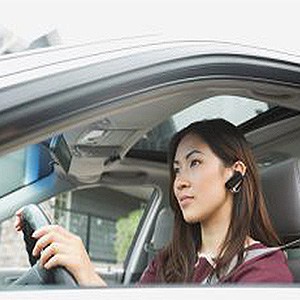Call Now To See How We Can Help!

Starting this month, Rhode Island drivers can be pulled over and fined $100 if seen with a mobile phone to their ear while behind the wheel.
The state’s hands-free driving law went into effect on June 1st. Providence Journal reports the law, which passed last year, is aimed at reducing the increasing number of fatal collisions on state roads. Traffic deaths increased 63 percent last year, claiming nearly 100 lives. Three other New England states, namely Connecticut, Vermont and New Hampshire, also prohibit drivers from talking on hand-held cell phones.
We expect to see an increase in auto accidents through the summer travel season, and many of those collisions will be caused at least in part by a driver who is distracted. Unfortunately, numerous studies have determined using hands-free devices while driving remains a distraction that creates accident risks for all road users.
We applaud state lawmakers for making the effort. Texting laws have not been effective in states that permit hand-held phone use because officers cannot readily determine whether a violation is occurring or a motorist is lawfully dialing the phone. However, an increasing number of states continue to fall for the “hands-free is safer” message. In fact, no state currently bans hands-free cell phone use by drivers.
The National Safety Council is among the organizations that have studied the issue. NSC reports hands-free devices provide drivers with a false sense of security. The organization’s message this summer is “Hands-Free is Not Risk-Free,” and it is urging drivers to sign a cell phone free pledge.
The cognitive distraction of talking on a phone while driving remains present regardless of whether a driver is using a hand-held or hands-free device. Studies assert that drivers talking on the phone miss up to half of what is occurring outside the window. Since 19 out of every 20 accidents are the result of driver error, remaining cognitively distracted by a phone conversation is an unacceptable risk to take while operating a motor vehicle.
Rhode Island law, § 31-22-30, Text messaging while operating a motor vehicle, outlines fines and penalties for drivers caught distracted by electronic devices. However, there are many other forms of distraction, including talking to passengers, dealing with pets or children, eating or drinking, grooming, or outside distractions like road construction.
Whether an at-fault driver is cited for a traffic violation is not the be-all, end-all for determining fault for a personal injury lawsuit. Violations of law can certainly be used as evidence of negligence, but negligence and civil liability do not hinge on criminal conviction, nor whether or not an at-fault driver was even cited or accused of violating the law.
Under Rhode Island civil negligence law, a plaintiff must prove five elements: That the defendant owed a duty of care, that defendant breached that duty, that breach of duty caused the plaintiff’s injury, that defendant’s actions or inactions were proximate cause of injury, and that plaintiff suffered actual damages.
In the case of a driver using a hands-free device in compliance with the new law in Rhode Island, he or she is still obligated to operate a vehicle in a safe and prudent manner. Thus, hands-free distraction would be argued as a violation of that duty by an experienced auto accident attorney.